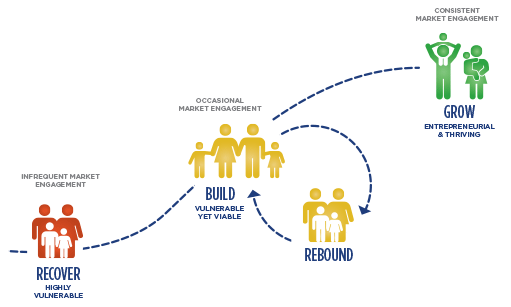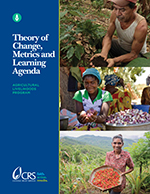About Agriculture
Pathway to Prosperity
Catholic Relief Services helps millions of smallholder farmers worldwide recover from natural disasters and civil strife, build resilient farming systems, and grow them into agro-enterprises that engage successfully with markets. Our Pathway to Prosperity approach helps farmers build sustainable livelihoods through a phase-by-phase process. We currently have 157 agriculture projects in 47 countries. Please click the image below for details into the Pathway to Prosperity process.
Learn more about Pathway to Prosperity
CRS Agriculture and Livelihoods Theory of Change
CRS' agricultural Theory of Change explains how and why a desired change is expected to happen through a project, and how the change is measured. CRS developed this Theory of Change to help teams design and implement projects that focus on a more consistent set of assumptions, and analyze progress using a defined set of metrics.
Reach of CRS Agriculture & Livelihoods Programs: Countries and Participants
Hover over a country for information on the number of direct participants and indirect participants (family members). For more detailed country information, visit Where We Work.
View map dashboard in a new tab/window.
For more detailed country information, visit Where We Work.
Building Resilience
CRS has a deep history of building resilience by helping individuals to address the challenges of recurrent shocks and chronic stresses. CRS’ Integral Human Development (IHD) Framework places people at the center of development, promoting a holistic approach to wellbeing that includes multiple human assets, as well as the ways in which people interact with the institutions and systems that impact their lives. Learn more.
Savings and Lending Groups
An integral part of our agricultural development programs is to help farmers organize into savings groups where they can pool their money and borrow from each other. This enables them to buy seeds, equipment and other assets they need to build successful businesses. To date, savings groups organized by CRS have saved almost $23 million through more than 196,000 groups in 60 countries, benefitting nearly five million beneficiaries worldwide.
Learn more about Savings and Lending Groups
Farmer-to-Farmer
CRS also implements an agricultural development volunteer program funded by USAID, Farmer to Farmer (F2F). The program sends US citizens with skillsets applicable to agriculture to Benin, Ethiopia, Nepal, Rwanda, Timor Leste, and Uganda to help local farmers, schools, agribusinesses and universities. The project runs from 2019-23, and will benefit 211 host organizations and train over 46,000 people, 18,400 of whom will be women. As of March 2021, we have sent volunteers on 174 assignments. Future adjustments may be made to program targets due to the COVID pandemic. During the 2013-18 phase of the program, CRS sent volunteers on 500 assignments to help 163 host organizations, and reaching 43,133 direct beneficiaries in Ethiopia, Kenya, Tanzania, and Uganda.
Learn more about Farmer-to-Farmer
US Department of Agriculture
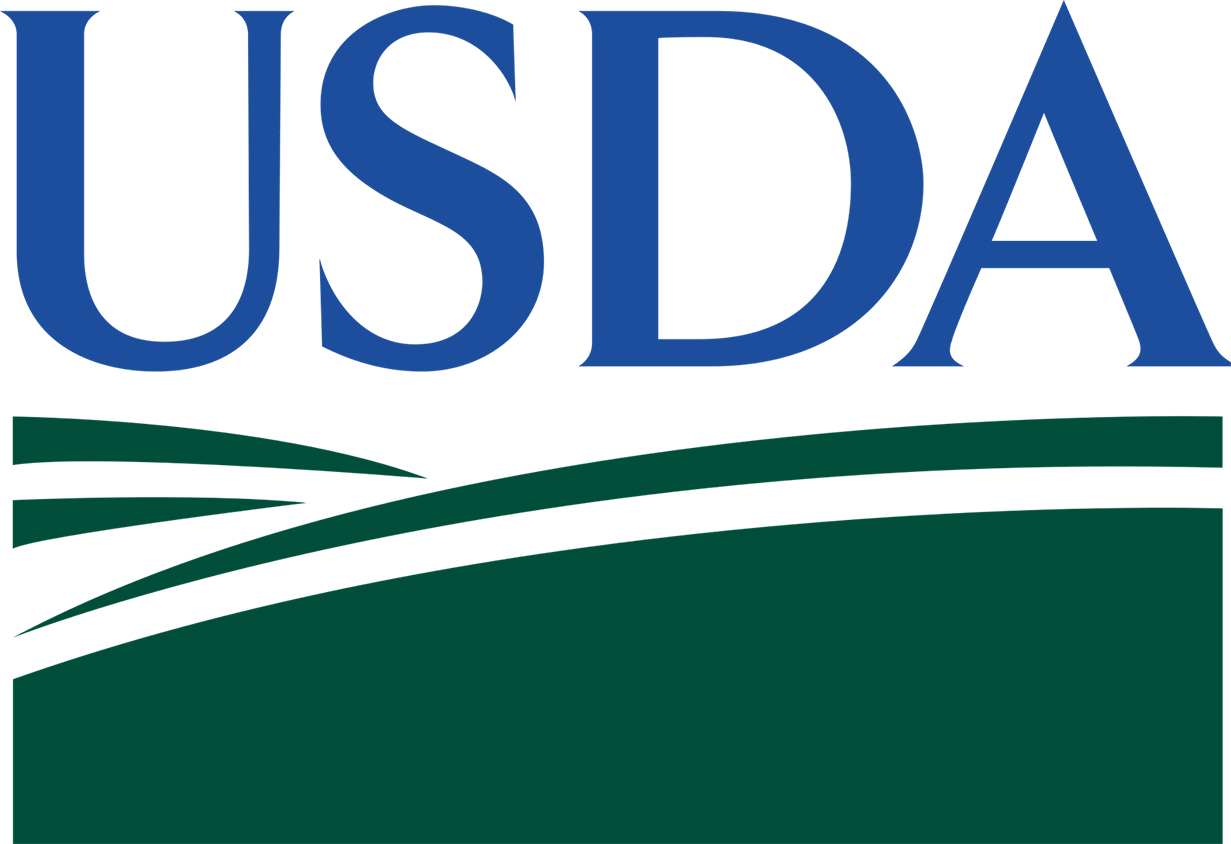
Through funding from the United States Department of Agriculture McGovern-Dole International Food for Education and Child Nutrition and Food for Progress Programs, Catholic Relief Services leads effective education and agricultural development projects to build strong, resilient futures among the world’s most vulnerable people. Together, through school feeding, quality education, and improved livelihoods of smallholder farming families, USDA and CRS are committed to building opportunities and ending hunger among those we serve.
CRS participated in the 2023 Borlaug Dialogue
The 2023 Borlaug Dialogue, hosted by the World Food Prize Foundation, took place October 24-26, 2023, in Des Moines, IA. The dialogue focused on “Harnessing Change” by harnessing innovation, adaptation, and diversification to improve systemic resilience, recover from shocks, and sustainably nourish all people.
CRS hosted 2 side-events
Agile data systems for food security monitoring, resilience insights, forecasting, and collaborative response
At this event, we shared and learned from each other about ways to design, implement, and collaborate around food security data systems.
Presenters:
- Austen Moore, Sr. Technical Advisor, CRS (Moderator)
- Chisomo Ngosi, Program Manager, CRS Malawi
- Joanna Upton, PhD, Sr. Research Associate, Cornell University
- Nobuo Yoshida, Lead Economist for Poverty & Equity Global Practice, World Bank
Download the presentation- PDF
Regenerating Hope: The promise of soil restoration at scale in Central America and Africa
A panel of experts from Latin America and Africa examined the vital role of soil restoration in sustainable intensification, climate adaptation and resilience for smallholder farmers. Catholic Relief Services, CIMMYT and CIAT highlighted results from a new study that identifies best-bet climate adaptation and risk mitigation strategies for Central American farmers that include potential alternative crops to maize and beans for the decades to come.
Presenters:
- Susan Chomba, Director of Vital Landscapes, WRI Africa (Moderator)
- Aggrey Agumya, Executive Director, FARA
- Axel Schmidt, Agriculture Science & Research Advisor, Land Restoration Platform, CRS
- Maria Boa Alvarado, Ph.D. Candidate, Cornell University, formerly CIMMYT
- Marcela Quintero, Associate Director General, Alliance Bioversity/CIAT
Program Subsectors
-
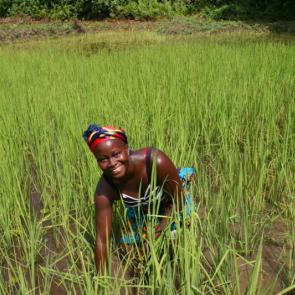
Sustainable Growth and Capacity Building
We work with farmers and communities to help them improve their skills. Learn about our work in Sustainable Growth and Capacity Building › -
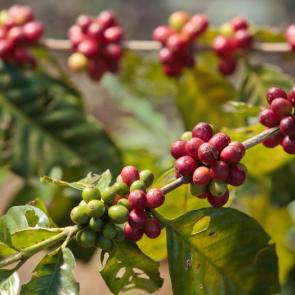
Inclusive Value Chains
Our agro-enterprise approach increases income, assets and local employment. Learn about our work in Inclusive Value Chains › -
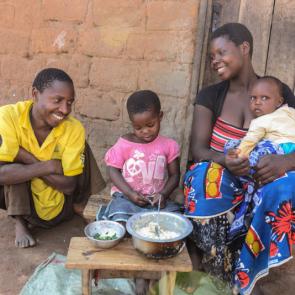
Agriculture and Nutrition
Learn how CRS integrates nutrition into its agriculture programming. Learn about our work in Agriculture and Nutrition › -

Recovery and Seed System Development
We help communities move from relief and safety net programs to development. Learn about our work in Recovery and Seed System Development › -
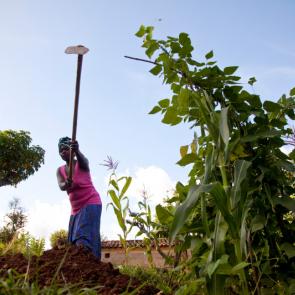
Regenerative Agriculture
Regenerative agriculture helps farmers restore productivity and resilience. Learn about our work in Regenerative Agriculture ›
Our impact
Our agricultural development programs help communities rebound when disaster strikes and build their long-term resilience. We start by providing the building blocks of a better harvest—better seeds and farming techniques, new skills, improved infrastructure and conservation techniques. Then we help farmers build the core skills they need to bring their goods to market and, eventually, increase sales by connecting to private-sector businesses. A harvest that yields food and income is the key to fighting poverty and hunger in much of the developing world.
Capacity at a Glance
Experience: 30+ years
Investment: $77 million for agriculture and livelihoods programming in FY20
Impact by the Numbers: Support to 7.6 million beneficiaries through 157 projects in 47 countries
Research & Publications
-
Manuals
When Disaster Strikes
A Guide to Assessing Seed System Security
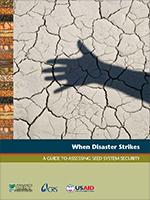
This guide presents a seven-step method for assessing the security of farmers' seed systems in situations of acute or chronic stress. It offers guidance to help practitioners determine what seed-related assistance is needed. More
-
Papers/Reports
Watershed Development in Malawi
A Study from the Wellness and Agriculture for Life Advancement (WALA) Program
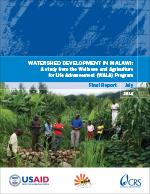
This study documents the approach and community perceptions of the CRS-led and USAID-funded Wellness and Agriculture for Life Advancement (WALA) program’s watershed work in Southern Malawi. The report looks at three main themes: behavior change, technological diffusion, and impact. More
Donation Form
Join Footsteps in Faith today!
Bring lasting change to children and their famlilies. Become a regular donor and for just 80 cents a day, you can make a difference!

